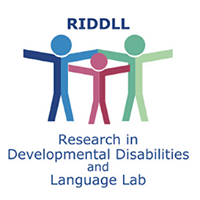The University of Wisconsin-Madison and the University of Massachusetts-Amherst are conducting a research study to learn about links between learning and language in Fragile X syndrome.

About the Study
Who can participate?
Males with fragile X syndrome ages 9-17 years may be eligible to participate.
What will happen in the study?
If the individual qualifies and decides to be in this research study, they will come to UW-Madison (Wisconsin) or UMass-Amherst (Massachusetts) for a total of two site visits, two years apart.
The following is a list of some of the study procedures that will happen during the study:
- Language assessments
- Cognitive testing
- Questionnaires
What are the good things that can happen from this research?
There will be no immediate benefits to participating in this research.
However, participation will provide the fragile X community and researchers with a better understanding of how language and learning are linked over time. This information could help with future interventions.
Participants will be compensated for their time and travel.
What are the bad things that can happen from this research?
A potential risk of participation includes the potential for a breach of confidentiality, although the study involves protections to minimize such risks. In addition, participants may become embarrassed or anxious when they are asked study questions or are completing study tasks.
There may be other risks that we do not know about yet.
Will I or my child be paid to complete this study?
Participants receive $75 per visit, totaling $150.
Travel reimbursement is available for eligible families.
Interested in Participating?
Our Most Recent Opportunities
FXS TECH Study
Researchers at Rush University Medical Center are working on technology to improve how to identify and track progress in children living with autism and Fragile X syndrome. The study is currently recruiting children ages 18 months to 5 years, and 12-18 years.
Study: Web Intervention for Parents of Youth with Genetic Syndromes (WINGS)
Researchers at the Autism Assessment, Research, Treatment & Services (AARTS) Center at Rush University Medical Center are currently conducting a fully-virtual research study that is testing two telehealth interventions that are designed to help parents of children with genetic syndromes and intellectual disabilities gain strategies to manage challenging behaviors.
Neural Underpinnings of the Relationship Between Cognition and Gait Dysfunction in Fragile X-Associated Tremor/Ataxia Syndrome (FXTAS)
Movement disorders researchers at Rush University Medical Center are conducting a research study to learn about brain activation in people living with FXTAS during tasks like walking and thinking. This study is currently recruiting adults ages 50+ who are living with FXTAS.
Pharmacogenomics and the Fragile X Community: Interest and Prior Understanding
Researchers at the University of Alabama are looking for members of the FX community to take their online survey so they can explore the knowledge & opinions of the FXS community on pharmacogenomic testing.
Brain & Behavior Study
Researchers at Purdue University are conducting a natural history research study to learn about brain activity in females, ages18-60 years, living with the FMR1 premutation.
NFXF Gene Therapy Community Survey
Help the NFXF - share your thoughts on gene therapy.

